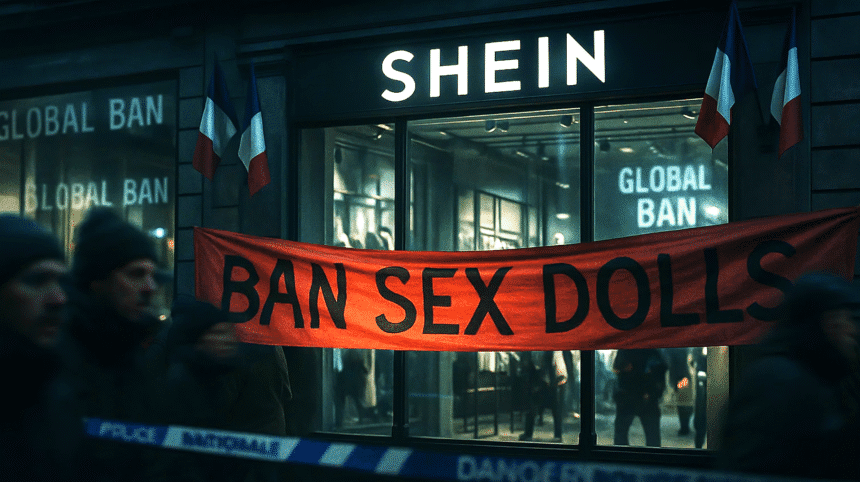Online fashion retailer Shein has announced a global ban on the sale of all sex dolls following a wave of outrage over listings that allegedly resembled children. The decision comes after France’s consumer watchdog, the DGCCRF, flagged the products over the weekend, calling them “of a childlike appearance” and “leaving little doubt as to the child pornography nature of the content.”
The controversy erupted just days before Shein was set to open its first permanent outlet in Paris, sparking both public protests and political condemnation.
Shein Responds With Global Ban
In a statement issued Monday, the company said it had permanently banned all seller accounts linked to illegal or non-compliant sex-doll products. It also announced the temporary removal of its adult product category, pending a full review of all listings.
“Shein has zero tolerance for child exploitation,” Executive Chairman Donald Tang said. “These were marketplace listings from third-party sellers, but I take this personally. We are tracing the source and will take swift, decisive action against those responsible.”
Shein added that it had tightened its keyword blacklist to prevent sellers from attempting to bypass restrictions and would implement stricter seller verification across its platform.
French Authorities Launch Investigation
The Paris prosecutor’s office confirmed that it received formal reports from the DGCCRF about Shein and several other online retailers like AliExpress, Temu, and Wish over the sale of sex dolls resembling minors. The investigation has now been referred to OFMIN, the French agency responsible for combating violence against minors.
French Finance Minister Bruno Le Maire warned that Shein could face an outright ban in France if the issue persists, saying, “France will not tolerate any platform that facilitates or profits from child exploitation.”
Public Outrage and Protests
The backlash was immediate. Protesters gathered outside the BHV department store in central Paris, near the location of Shein’s upcoming store launch, demanding accountability and stricter oversight of online marketplaces. Many called for greater regulation of e-commerce platforms that host third-party sellers with minimal vetting.
A Pattern of Controversy
This is not the first time Shein has come under fire. The brand, headquartered in Singapore but with major operations in China, has faced repeated criticism for poor labor conditions, environmental damage, and questionable supply-chain ethics.
While Shein’s latest move may help contain immediate damage, the incident has renewed concerns about oversight in online marketplaces and the responsibilities of global e-commerce giants in preventing illegal or exploitative content.
















